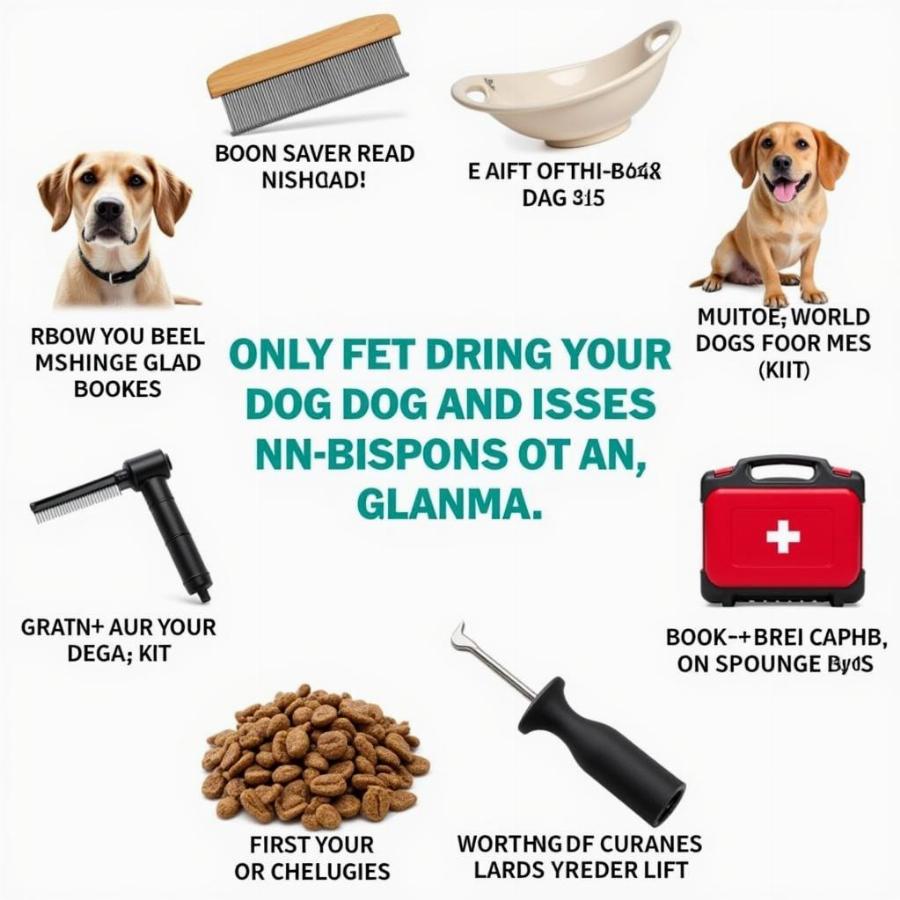Dog glands, specifically anal glands, can sometimes express a foul-smelling fluid that can end up on your furniture. This unpleasant odor can be difficult to remove, but with the right approach, you can restore your furniture’s freshness. This article will guide you through effective methods to eliminate that pesky dog gland smell and keep your home smelling clean and inviting.
Understanding Dog Gland Smell and Its Impact on Furniture
Dog anal glands, located on either side of the anus, contain a fishy-smelling fluid that’s naturally expressed during bowel movements. However, sometimes these glands become impacted or infected, leading to leakage and that distinctive, unpleasant odor clinging to your furniture. This can be especially problematic on fabrics like couches and carpets, which absorb the fluid easily.
Effective Methods for Removing Dog Gland Smell
Cleaning Solutions for Upholstery and Fabrics
- Enzyme Cleaners: These cleaners are specifically designed to break down organic matter, including the proteins found in anal gland secretions. Follow the product instructions carefully for best results.
- Baking Soda and Vinegar Solution: A mixture of baking soda and white vinegar can help neutralize odors. Sprinkle baking soda on the affected area, let it sit for a few minutes, and then spray with a diluted vinegar solution. Blot dry after the fizzing subsides.
- Commercial Upholstery Cleaners: Look for upholstery cleaners designed for pet odors. Test the cleaner on an inconspicuous area first to ensure it doesn’t damage the fabric.
Cleaning Hard Surfaces
- Disinfectant Wipes: For non-porous surfaces like wood or tile, disinfectant wipes can effectively remove the smell and bacteria.
- Soap and Water: A simple solution of soap and water can also be effective, especially if the stain is fresh.
Preventing Future Dog Gland Issues
- Dietary Changes: Increasing fiber in your dog’s diet can help regulate bowel movements and encourage natural expression of the anal glands.
- Regular Vet Checks: Have your vet check your dog’s anal glands during routine visits. They can advise on proper gland expression and address any potential issues.
- Professional Grooming: Many groomers offer anal gland expression as part of their services.
How do I know if my dog’s glands are the source of the smell?
The smell of impacted or infected anal glands is very distinct and often described as fishy or metallic. If you notice this particular odor on your furniture or emanating from your dog, it’s likely the anal glands are the culprit.
What if the smell persists after cleaning?
Sometimes, the odor can be deeply embedded in porous materials. If home remedies don’t work, consider contacting a professional cleaning service specializing in pet odor removal. They have specialized equipment and techniques to tackle stubborn smells.
Conclusion
Dealing with dog gland smell on your furniture can be frustrating, but by following these tips, you can effectively eliminate the odor and prevent future occurrences. Remember that regular vet check-ups and a healthy diet can help keep your dog’s anal glands healthy and minimize the risk of unpleasant smells in your home.
FAQ
- How often should I clean my dog’s anal glands? Typically, dogs express their anal glands naturally during bowel movements. However, if you notice a persistent odor, consult your vet.
- Can I express my dog’s anal glands at home? While it’s possible, it’s best to leave this procedure to a vet or groomer to avoid injury to your dog.
- What are the signs of impacted anal glands? Scooting, licking or biting at the anal area, and a foul odor are common signs.
- Are certain breeds more prone to anal gland problems? Smaller breeds tend to experience anal gland issues more frequently than larger breeds.
- Can diet affect anal gland health? Yes, a high-fiber diet can help regulate bowel movements and encourage natural expression of the anal glands.
- What should I do if my dog’s anal glands are constantly expressing? Consult your vet to rule out any underlying medical conditions.
- Can impacted anal glands be painful for my dog? Yes, impacted or infected anal glands can be quite uncomfortable and even painful for your dog.
More Helpful Resources
 Dog care tips
Dog care tips
Beaut Dogs is your trusted source for all things dog-related, offering comprehensive information and guidance on dog breeds, care, health, and more. Visit Beaut Dogs today to explore our vast library of resources and learn how to provide the best care for your canine companion. When you need expert advice, email us at [email protected] for detailed and accurate answers.